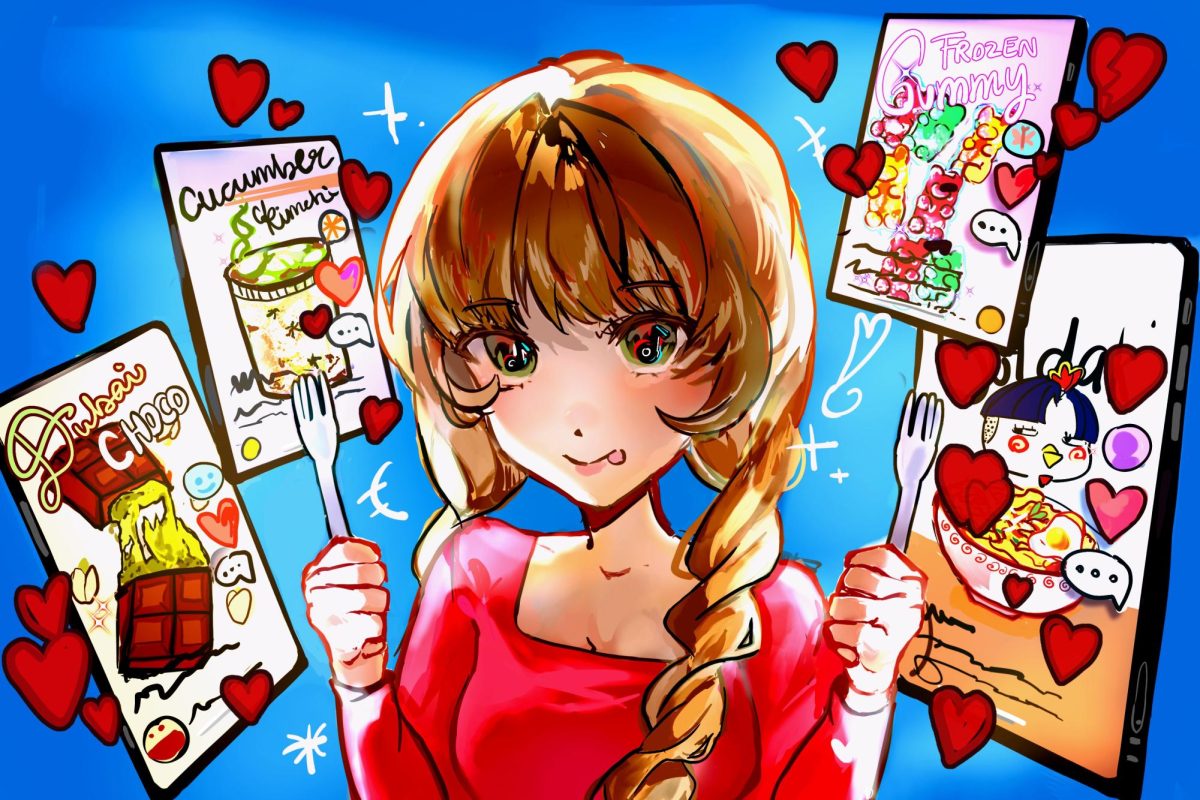From the unassuming girl next door to the empowered pop star on top of the world, Taylor Swift’s singer persona has constantly evolved throughout her career as fractions of herself that are blown up to play a part. Her latest release from Oct. 21, “Midnights” shares her stories of self-hate and experience in the limelight since the age of 16. By mastering an upbeat pop production juxtaposed with personal and devastating lyrics, Swift shows a side of herself never seen before.
“Midnights’” concept alludes to the famous Cinderella tale and its midnight motif. As the clock hand draws nearer to twelve, the magic of stardom that Swift was once attracted to begins to fade.
This was demonstrated in the “Bejeweled” music video, as Swift plays her version of Cinderella. She makes a callback to her “Wildest Dreams” music video, as she replicates the ending scene’s 1950s-Hollywood-inspired outfit and hairstyle — a symbol of the initial enchantment of stardom.
Track five, “You’re On Your Own, Kid,” describes the sacrifices she’s made on her road to fame, which was not as magical as she had once thought it would be. She hoped that her sacrifices would lead her to “be saved by a perfect kiss,” or a fairytale ending. Instead, she was met with criticism and alienation.
Contemplating the last 16 years of her life, she realizes how isolated she’d been, singing “You’re on your own, kid. You always have been.” Her search for happiness in the spotlight is mirrored by the idea of chasing after a lover who “never cared.”
In her past albums like “Fearless” and “1989,” Swift touches less on self-reflection. “Anti-Hero” stands out with — in her own words — the deepest she’s gone in her insecurities.
This sentiment is evident as she sings, “Did you hear my covert narcissism I disguise as altruism, like some kind of congressman? Tale as old as time,” a bitter confession over the persona she’s presented for years. She feels the praise it’s brought is untrue — made for someone who doesn’t exist — as she masks uglier traits with more acceptable ones.
In the closing track, “Mastermind” Swift confesses to a lover how she planned for them to fall for her all along. Ashamed of her manipulative tendencies, the singer comes clean despite fearing they’ll stop loving her once they know the truth. At the end, she realizes her lover embraces her for herself, singing “You knew the entire time; you knew that I’m a mastermind.” With this sentiment, she’s set on a path of self-acceptance and raw honesty.
With its relatable lyrics, it’s clear why fans were mesmerized by these vulnerable tracks. As Swift revisited agonizing nights to bare her truths to the world, fans were touched more than ever, as they began to understand the roots of her problems and her innermost thoughts. These midnights scattered throughout her life were revolutionary moments providing intimate introspection — immortalized into haunting ballads and for her own reflection. It’s evident that she finds herself on a new path of growth, not just in the industry, but in her personal life too.
































































